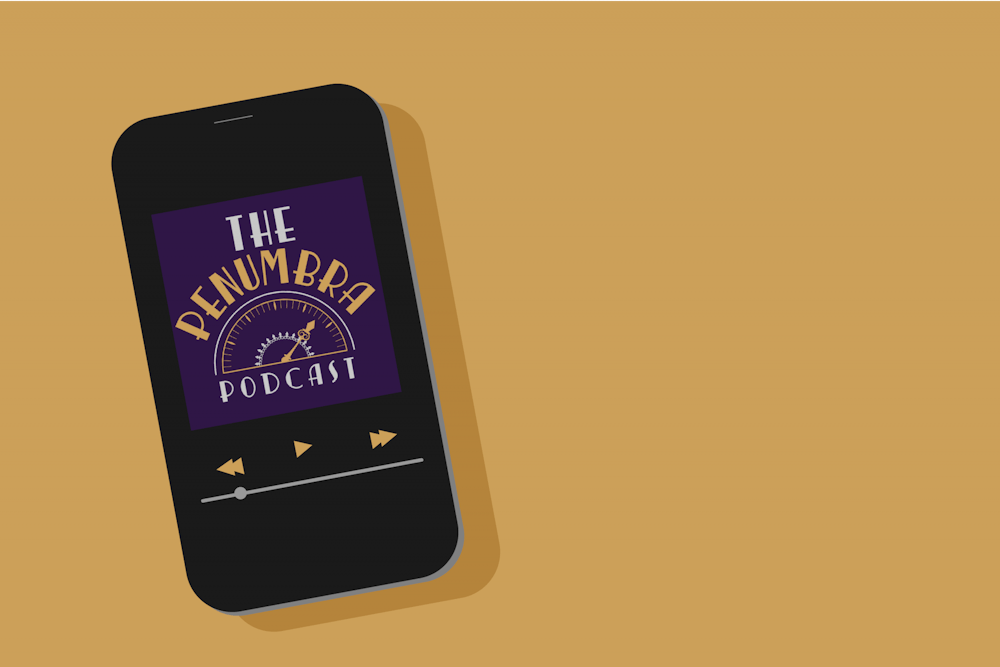The upcoming Netflix film The Devil All the Time released its trailer two weeks ago, causing a buzz thanks to its star-studded cast and suspenseful, gothic tones. Though it boasts the talents of industry heavy—hitters like Robert Pattinson, Tom Holland, and Sebastian Stan, there is not a single person of color to be found amongst the cast list.
Though curious about the plot, I was uncomfortably aware that there was not a single character who looked anything like me. As an Indian–American, I feel like I've been forced to accept the lack of representation in mainstream entertainment; recently, however, it's been bothering me more acutely than ever.
My lack of patience with all–white casts is mostly due to the fiction podcasts I’ve been devouring. Fiction podcasts include scripted narratives, let’s play podcasts featuring creators playing tabletop games like Dungeons and Dragons, found–footage productions, and more. It's a unique corner of a genre often dominated by true crime or nonfiction.
What sets mainstream film and television apart is not even an unwillingness to provide diversity—it's the lack of quality representation. It’s not enough for your queer representation to be one white, gay man and for your POC representation to be one sidekick—or worse, to have one Diverse Character, who is both queer and a POC, burdened with the weight of representing such a varied group of people.
Often, mainstream media that incorporates representation for representation’s sake falls into the trap of problematic or offensive representation even if that wasn't their intent. If there is only one queer character or character of color, that character has the difficult task of representing an entire population of people. If they're evil, or flamboyant, or “stereotypical,” then that depiction becomes the visible face of an entire group of people and, thus, inherently problematic.
In contrast, podcasts have diversity embedded so deep, it's as important to the work as its plot or themes. Popular podcasts such as The Adventure Zone, Welcome to Nightvale, and The Magnus Archives integrate queer and POC representation in a way subversive to mainstream narratives.
The Penumbra Podcast, a science–fiction, noir story, is an outshining example of media inundated with queerness and diversity. It follows Detective Juno Steel, an angsty, sharpshooting lead solving mysteries on Mars. Almost every character is canonically queer in text, and a wide variety of queer identities are depicted—identities that are relevant to the plot, but not the source of conflict.
In the very first episode, Detective Steel himself falls head over heels for another man. Steel is also non–binary, identifying with he/him pronouns but also comfortably referring to himself as a lady; official character art also depicts him as a handsome, black lady. The honorific Mx. is as valid and accepted as Mr. or Mrs. Women are described as gorgeous because of their strong jaws and rippling muscles. Men confidently wear makeup and dresses just because they want to.
An array of sexual orientations are represented as well. Minor characters talk about their same–sex spouses. Asexual or aromantic representation, so often neglected in mainstream entertainment, is flourishing and commonplace. Characters confidently announce they feel no romantic attraction.
Penumbra has the freedom to make their villains queer and flamboyant because everyone is queer. Every character is three–dimensional, and not reduced to their identities or used for representation brownie points. It is stunning to hear such a world come to life. It shows that there is no valid excuse for not incorporating diversity in your stories and that traditional story tropes still work with queer characters and characters of color.
Podcasts are defined by their independence. Most survive off of Patreon donations, beholden to young, diverse audiences. Many, like Penumbra, also boast queer, diverse creators, who thrive in an industry with a remarkably low barrier to entry. Unique because they depend on grassroots fundraising, they are—at their core—antithetical to mainstream entertainment, which is clinically tailored for mass appeal by mega–wealthy companies. This leaks into their stories, and so many of them are unabashedly anti–corporation, anti–capitalism, and anti–government.
The worst thing that could happen to podcasts would be for the burgeoning format to catch the attention of corporate entertainment. Creators would enter the genre solely for financial gain, with the objective of packaging stories for a homogeneous, mass audience—an audience that has never really acknowledged people like me and yet constantly dominates the traditional entertainment I partake in. However, podcasts are becoming increasingly mainstream, with many being adapted for television.
Hopefully, podcasts force film and TV to open up to the beauty and diversity present in the real world—present through people like me. At the very least, they have taught me to insist on diverse narratives instead of settling for star–studded casts without a drop of melanin.

